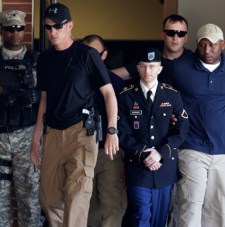Bedecked
—Victoria Redel
Tell me it’s wrong the scarlet nails my son sports or the toy store rings
he clusters four jewels to each finger.
He’s bedecked. I see the other mothers looking at the star choker,
the rhinestone strand he fastens over a sock.
Sometimes I help him find sparkle clip-ons when he says sticker earrings
look too fake.
Tell me I should teach him it’s wrong to love the glitter that a boy’s only
a boy who’d love a truck with a remote that revs,
battery slamming into corners or Hot Wheels loop-de-looping off tracks
into the tub.
Then tell me it’s fine—really—maybe even a good thing—a boy who’s
got some girl to him,
and I’m right for the days he wears a pink shirt on the seesaw in the park.
Tell me what you need to tell me but keep far away from my son who
still loves a beautiful thing not for what it means—
this way or that—but for the way facets set off prisms and prisms spin up
everywhere
and from his own jeweled body he’s cast rainbows—made every shining
true color.
Now try to tell me—man or woman—your heart was ever once that brave.
he clusters four jewels to each finger.
He’s bedecked. I see the other mothers looking at the star choker,
the rhinestone strand he fastens over a sock.
Sometimes I help him find sparkle clip-ons when he says sticker earrings
look too fake.
Tell me I should teach him it’s wrong to love the glitter that a boy’s only
a boy who’d love a truck with a remote that revs,
battery slamming into corners or Hot Wheels loop-de-looping off tracks
into the tub.
Then tell me it’s fine—really—maybe even a good thing—a boy who’s
got some girl to him,
and I’m right for the days he wears a pink shirt on the seesaw in the park.
Tell me what you need to tell me but keep far away from my son who
still loves a beautiful thing not for what it means—
this way or that—but for the way facets set off prisms and prisms spin up
everywhere
and from his own jeweled body he’s cast rainbows—made every shining
true color.
Now try to tell me—man or woman—your heart was ever once that brave.
Note: Using smaller font to preserve more of the poet's own line breaks.








